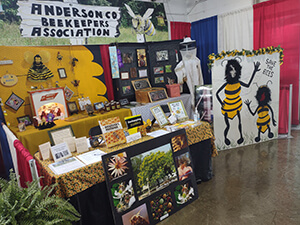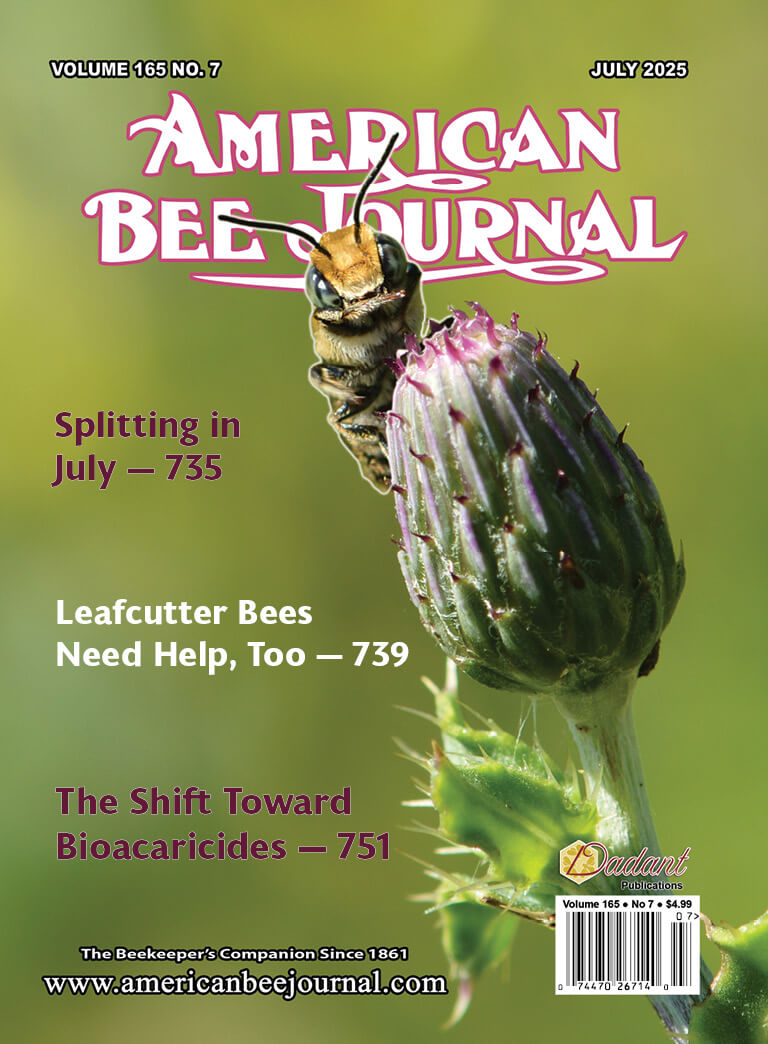It started with God
Eugene, I want to thank you once more for your work as editor of the American Bee Journal. It is greatly appreciated. Given this is the most busy time of the year for a gardener and beekeeper, I am a bit behind in reading articles. In the May 2023 magazine in the article “Honey Bee Pedigrees” by Peter Borst, he makes the following statement in the first column of page 541: “The code has clues to the whole history of the evolution of life, with the glaring exception — we don’t know how this all got started.”
We do know how this all got started. God the Creator made all of this world. It is God’s design and the depth of complexity clearly shows that a great designer who created it all put it together and got it started. In Genesis 1:1 we are told, “In the beginning God created the heavens and the earth.” And in Romans 1:20 we are told, “For since the creation of the world God’s invisible qualities — his eternal power and divine nature — have been clearly seen, being understood from what has been made, so that men are without excuse.” As a keeper of bees I continue to marvel and be amazed at the design of the honey bee and the colony and it causes me to stop and simply praise and thank God for the world He created and for His amazing gift of life that we have been granted. God’s blessing on your day.
Respectfully,
Gordon Goeking
Raleigh, North Carolina
Sticky Floors
I work part time at a distribution center. The pallets of merchandise come in on pallets and those pallets have a protective sheet of thick paper between the pallets and the merchandise. Those sheets of paper make great protective covers for the extracting room floor and I have access to as many sheets as I need.
Mike Stoops from LA
(Lower Alabama)
Natural Beekeeping Again
I wish to express my thanks to Jeremy Barnes for his heartfelt response to my article critiquing natural beekeeping. He made me aware of how my article failed to clearly identify its intended goal which was to address some of the problems new beekeepers are facing with natural beekeeping methods. It was never my intent to challenge the way successful beekeepers run their apiaries.
“Natural beekeeping” is not a standardized practice. For example, Barnes points to his success with insulating hives which is supposed to mirror tree cavities in the wild. Ross Conrad, on the other hand, wrote in Bee Culture (September 2022) that super-insulating hives is a waste of time, money and resources. This is a guy who literally wrote the book on natural beekeeping. He lives in Vermont and has observed thousands of colonies survive the winter there in hives with ¾-inch pine walls. One of Lorenzo Langstroth’s original hive designs called for double-walled boxes and the space between them was filled with 3” of sawdust insulation, yet his simple single-walled boxes have become the mainstay for housing bees for over a century. Insulating hives is hardly a new idea and the debate will continue. But this illustrates some of the confusion students face if they want to “put the needs of the bees before the needs of the beekeeper.”
Barnes and I have approached beekeeping from different directions. He started from a conventional approach and has since switched to a more natural method he calls “regenerative” beekeeping. For my first seven years I was a treatment-free beekeeper which falls into the realm of natural beekeeping. I was moderately successful in the beginning; my annual losses were around 30% which is less than the national average. But in 2017 I lost 80% of my colonies. Looking back, I recognize that within a mile of my apiary I could point out at least six neighbors who had begun keeping bees. I was not raising bees in isolation. Did this play a role in my losses? By 2019 only one of those neighbors still had colonies. It makes you wonder.
The stories I hear from new beekeepers include the following: that by starting colonies with swarms, bees will not have problems with mites; that bees in the wild are healthier than conventionally managed colonies; that bees raised in Layens hives will be healthier than those raised in Langstroth hives; that hives with foundationless frames are better for the bees; that sugar is essentially poison for bees; that their bees were fine the last time they inspected four weeks ago in early May; and worst of all, that swarming should be encouraged because it is natural. These are all people who are asking for my help because they cannot keep their bees alive. They are discouraged, distraught, and bitter because they got into beekeeping to help the bees and were willing to put the bees’ needs before their own. In turn they are failing both their bees and themselves.
The phrase “putting the needs of the bees before the needs of the beekeeper” is a clever soundbite. But before we encourage new beekeepers to climb 15-foot ladders and spread their colonies 75 yards apart across the landscape, maybe we should simply encourage them to raise healthy bees. Perhaps what is best for the beekeeper can be what is best for the bees.
Fred Jones
Pilot, Virginia
Best of Show for Fair Booth

At our booth we displayed fun decorations mixed in with educational handouts and posters as well as the winners in the Honey Show. We have a demo hive where each frame can be pulled out showing a photo front and back on what one can expect to see in a hive body. We had a not-too-dirty bee suit and very dirty hive tool. That makes it real, right? Then one member obtained a hive assembly in miniature, making it easier to transport when giving demonstrations. There’s even a mini smoker. Too cute!
I displayed some of my fine art using encaustic and explaining the history of this ancient medium using beeswax. We constructed a fun photo op to “Save the Bees” with the word “bees” starting to fade as a subliminal touch I hope. Finally we had a signup sheet for our next Beginner Beekeeping Class held every November.
There is actually a point system that is added to determine award ribbons. Looks like we got most of them to earn not just a blue 1st Place ribbon but the rose Best of Show ribbon at the Anderson County Fair in July.
Educational Booth Score Card
~ Attracts attention (possible 10 points). Use of clever design, color and special features.
~ Attention getter does not distract from main idea.
~ Holds interest (possible 20 points). Tells coherent, clear cut, one idea message quickly.
~ Arouses curiosity, emphasizes importance of problems, relates experience to viewer and offers solution; promotes logical sequence of thought.
~ Conveys message (possible 30 points). Timely and personal; single idea; suitable subject.
~ Effective title (possible 10 points). Short, catchy, appropriate; active verb.
~ General appearance of workmanship (possible 10 points). Booth and material artistically arranged, neat and attractive.
~ Uses explanatory material effectively (possible 20 points). Material brief and easily read and understood by average person; size and number of charts, maps, place cards, letters, etc., appropriate for exhibit idea.
TOTAL POSSIBLE POINTS 100
Bee well,
Neranza Blount
Anderson Co. Beekeeping Association Tennessee
The Risks of Post-almond Bees
Laurie from New Mexico wrote last month [August Letters] about a problem she had with bees which were purchased from almonds. It is a very interesting letter which provides an opportunity for great discussion. Let me try to unpack what is a rat’s nest of issues outlined in her letter.
I did talk with her a bit to get a few more details. There is zero doubt in my mind she got a really bad deal. A small portion of that is not completely understanding the risk, but leave no doubt, she was also a victim of a middleman, weather, and bad decisions.
First and foremost, the almonds and California pollination, is not the issue. Bees off almonds are a great thing, almond pollen and nectar build huge hives quickly and spray and theft risk are …


